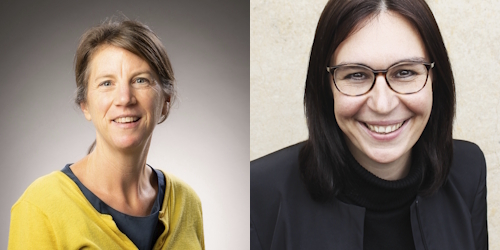2025 Award Recipients | Hilde Coffé & Marion Reiser
 Lecture: How Perceptions and Information About Women’s Descriptive Representation Affect Support for Positive Action Measures
Lecture: How Perceptions and Information About Women’s Descriptive Representation Affect Support for Positive Action Measures
Based on the German Longitudinal Election Study (2016), we explain citizens’ support for measures to increase women’s descriptive representation in parliament. Despite women’s underrepresentation, we find little support for positive action measures, and in particular for legal gender quotas. Binary logit analyses show that support for the introduction of positive action measures is not affected by citizens’ perceptions about the share of female members of parliament. However, experimental data reveal that receiving information about women’s actual proportion in parliament has an impact on citizens’ support for gender quotas, in particular among those who overestimate women’s representation. Once they learn that the actual share is lower than they thought, they are more likely to support the introduction of quotas. This indicates that support for positive action measures can be changed through providing the correct information.
Biography
Hilde Coffé is Professor in Politics at the University of Bath. Her main research interests included political behaviour, public opinion, political representation and gender and politics. She has been a visiting scholar at several institutions, including the University of California (Berkeley and Irvine), the University of Sydney, Åbo Akademi University, Helsinki University, SciencesPo Paris, the Spanish Scientific Research Institute, Ghent University and the Weizenbaum Institut (Berlin).
Marion Reiser is Professor for Political Science at the University of Jena, Germany. She holds a PhD from the University of Goettingen (2005) and a Habilitation (2014) from the University of Frankfurt. Her main research interests include political representation, political parties, public opinion as well as subnational politics.











